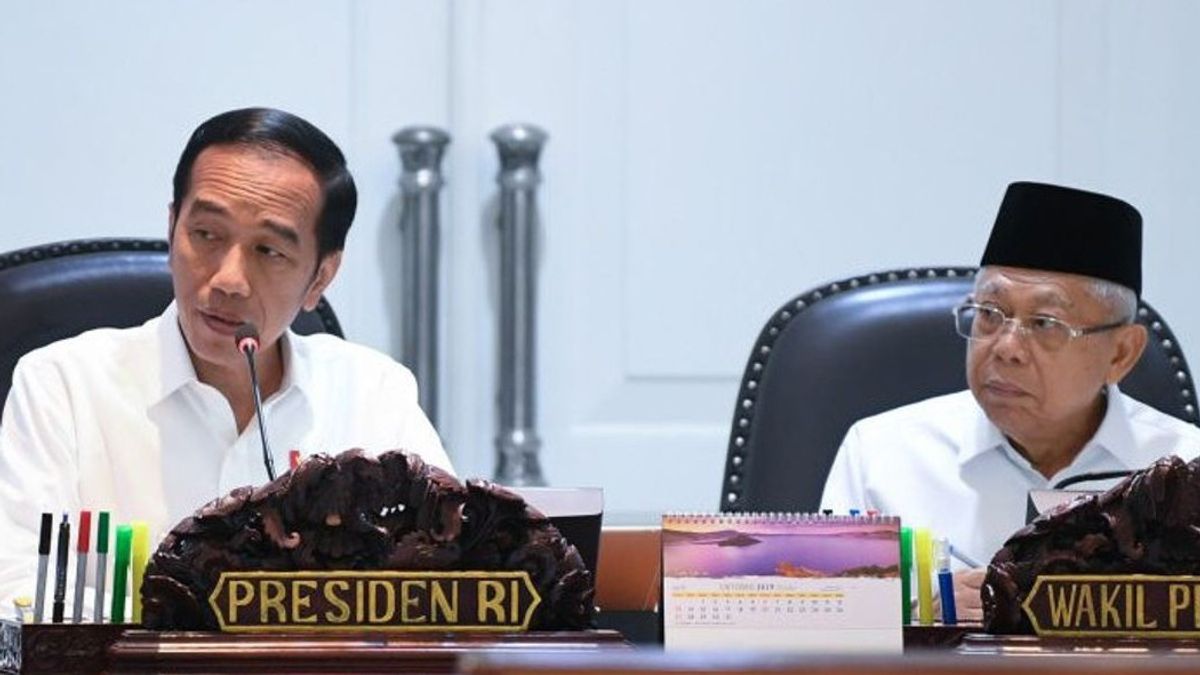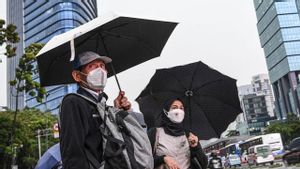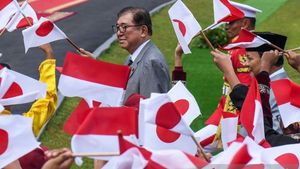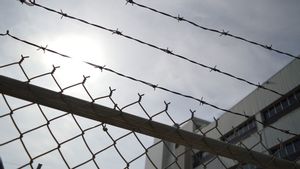JAKARTA - The Indonesian Legal Aid Foundation (YLBHI) assesses that the realization of the vision and mission of President Joko Widodo (Jokowi) and Vice President Ma'ruf Amin is far from being fire. The reason is because within a year government policies actually appear to weaken law enforcement and human rights.
In fact, when Jokowi ran again in the second term, he had a number of vision and mission such as enforcing a legal system that is free of corruption, dignified and reliable, divided into a number of points, namely continuing regulatory structuring, continuing system reform and law enforcement, prevention and eradication. corruption to respect, protect and fulfill human rights.
"After a year has passed, the realization of the Jokowi-Ma'ruf mission is far from burning. The policies made by the government in the past year have actually weakened law enforcement and human rights, eradicating corruption, destroying the environment, and taking people's living space," said the Chairman. YLBHI Advocacy Division Muhammad Isnur, as quoted from his written statement, Wednesday, October 21.
Jokowi-Ma'ruf has recorded at least seven points in a year.
The first is the approval and signing of the revision of the KPK Law. Based on Jokowi-Ma'ruf Amin's 100-day record, YLBHI considers that the revision of this law actually weakens the anti-graft agency due to the existence of the KPK Supervisory Board which changes the status of employees to state civil servants (ASN).
"One by one these indications are proven. In July, PP 41/2020 concerning the Transfer of KPK Employees to ASN Employees was passed. In addition, the integrity of the KPK leadership needs to be questioned. The KPK chairman, Firli Bahuri, was proven to have violated the code of ethics by using a helicopter while visiting Baturaja, South Sumatra. While the ethical decision of the KPK Supervisory Board only provides a written warning to the KPK Chair. According to the chairman of the Supervisory Board, Firli Bahuri did not realize the violation. This also proves that the KPK chairman does not understand the code of ethics of his own institution, "he said.
The second point is the approval and signing of the revision of the Minerba Law. According to Isnur, the revision of this law only benefits mining business groups and threatens the environment and society. Moreover, in one of the articles, namely Article 169A related to the extension of the Contract of Work (KK) or Coal Mining Exploitation Work Agreement (PKP2B), it was carried out without an auction.
"So, KK and PKP2B holders who have not received an extension will get two extensions in the form of a Special Mining Business Permit (IUPK) each for a maximum of 10 years," he said.
Furthermore, the revision of the Constitutional Court Law was approved and signed, which within seven days of deliberation was then ratified by the Indonesian Parliament. "The DPR is imposing a revision of this law even though it is not included in the 2020 Priority Prolegnas. However, although YLBHI and the Coalition have asked President Joko Widodo to reject this revision, the president has instead continued to approve and sign this revision," explained Isnur.
[/ read_more]
The fourth is regarding the Polemic Job Creation Omnibus Law. According to him, with the passage of the Job Creation Law on Monday, October 5, it made a package so that the oligarchy would become stronger. This package begins with a revision of the KPK Law to facilitate their movement.
"It begins with the revision of the KPK Law which aims to facilitate the movement of the Oligarchs, followed by a revision of the Minerba Law which extends the privileges of large mining companies in Indonesia. Then it is followed by a revision of the Constitutional Court Law which becomes a candy bar paving the way for the Oligarchs. the enactment of the problematic Job Creation Law even before this regulation was enacted, "said Isnur.
Fifth, YLBHI also focuses on the problem of agrarian conflicts and the environment that are increasingly rife. At least, from January to August this year, Isnur said that his agency had recorded 79 agrarian and environmental conflicts that resulted in the criminalization of farmers and indigenous peoples.
[/ read_more]
Furthermore, the sixth point that becomes the record of YLBHI is the silence of freedom of opinion. At least, there are 28 indicators that reinforce this with three patterns indicating the rise of authoritarianism in Indonesia. The three patterns referred to are efforts to inhibit civil liberties of thought, assembly, opinion, expression and belief; ignoring the applicable laws both the constitution, TAP MPR and statutory regulations; and has a repressive character that puts forward a security approach and sees criticism as a threat.
Other signs about the silencing of freedom of expression are also reflected in the Head of Police's Telegram Letter Number: STR / 645 / X / PAM.3.2. / 2020 dated October 2, 2020, saying that the Police must also divert the issue of demonstrations against the Omnibus Law to prevent massive transmission of COVID- 19 and this is contrary to the right to express an opinion and Perkapolri No. 9 of 2008 concerning Procedures for Implementing Security Services and Handling Cases for the Delivery of Opinions in Public.
In addition, Isnur also considered that the police had become a tool of government power because in the letter, the National Police Chief also ordered cyber police to comb through statements trying to build a narrative against the Omnibus Law of the Job Creation Law.
[/ read_more]
He also mentioned that violence against the protesters also continued to occur. Based on police data as of October 13, 2020, 5,198 participants in the action were arrested by the police. Apart from the arrests of the protesters, the police also committed violence against journalists covering demonstrations in various cities. The Alliance of Independent Journalists (AJI) Indonesia noted that 28 journalists in 38 cities experienced violence while covering the protest against the Omnibus Law.
The last point is the neglect to resolve past mass human rights violations. According to Isnur, in the LBH-YLBHI notes, President Jokowi did not make human rights an important thing that must be considered before making a policy. This can be seen from the government's absence of political will to resolve past gross human rights violations.
[/ read_more]
In addition, Komnas HAM notes that up to now there are still 12 cases of serious human rights violations that do not have legal certainty. In the same note, Komnas HAM stated that only three cases were followed up by the Attorney General up to the human rights court level. The three cases were the Timor-Timor, Tanjung Priok and Abepura incidents.
So, reflecting on the seven points that have been explained by Isnur, in a year of Jokowi-Ma'ruf Amin's administration, YLBHI then warned the government that Indonesia is a rule of law and the government is bound by the Constitution. This institution also urges President Jokowi to repeal policies that are not in accordance with the law and human rights and urges the government to respect the law and human rights and protect its citizens.
[/ read_more]
The English, Chinese, Japanese, Arabic, and French versions are automatically generated by the AI. So there may still be inaccuracies in translating, please always see Indonesian as our main language. (system supported by DigitalSiber.id)













